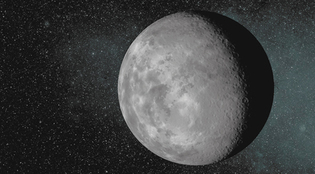 loading
loading
FindingsNoted Associated Press/NASA/AMES/PL-CalTechView full imageUsing NASA’s planet-hunting Kepler space observatory, a group of researchers, including Yale astronomers Sarbani Basu and Debra A. Fischer, have spotted the smallest planet yet detected in the universe. Kepler 37-b (see artist’s rendering) is only a bit larger than our moon and orbits a distant star similar to our own sun, so the discovery, reported in the February 28 issue of Nature, is akin to finding a very small needle in an enormous haystack. The rocky and tiny exoplanet is expected to be lifeless, with no atmosphere and a surface temperature of about 800 degrees—hot enough to melt a penny. There is a connection between salt in the Western diet and autoimmune diseases such as multiple sclerosis, according to a team led by School of Medicine neurologist and immunobiologist David A. Hafler. Both in mice and in human cells studied in a test tube, salt causes a jump in the formation of immune-system cells implicated in the development of disorders in which the immune system attacks, rather than defends, the body. Hafler notes that the study shows that salt can induce and worsen pathogenic immune system responses in mice and the response is regulated by genes already implicated in a variety of autoimmune diseases. He suggests the research, published online in Nature, offers yet another compelling reason to adopt a low-salt diet.
The comment period has expired.
|
|